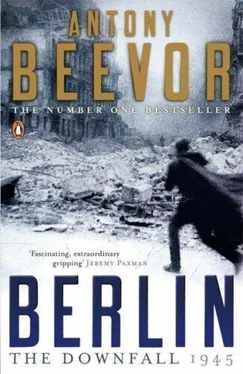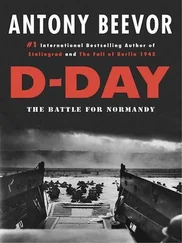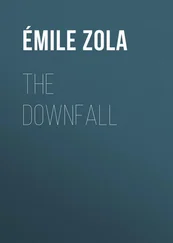Few had any illusions about what lay ahead. The Berlin health department ordered hospitals to provide another 10,000 bed spaces for civilians and another 10,000 for military use as ‘catastrophe beds’. This decree was typical of Nazi bureaucracy: it made no allowance for the effects of bombing and the scarcity of resources and trained medical staff. It was one thing to provide bed spaces, but doctors and nurses were already desperately overstretched, and they simply did not have the personnel to move patients down into cellars during the nightly air raids. Meanwhile, hospital administrators were having to waste time negotiating with different Nazi Party departments to allow their staff to be excused call-up for the Volkssturm militia.
The Volkssturm itself had been born the previous autumn out of Nazi ideology and petty power struggles. Hitler’s suspicions that the army’s leadership was both treacherous and defeatist made him determined that control of this mass militia should be kept out of its hands. Himmler, head of the Waffen SS and commander-in-chief of the Replacement Army since the July plot, was an obvious candidate, but the ambitious Martin Bormann was determined that the Volkssturm should be organized locally by the Nazi Party Gauleiters who came under him. Since almost all German males between seventeen and forty-five had already been called up, the Volkssturm was an amalgam of teenagers and the elderly.
Goebbels, now also Reich Defence Commissar for Berlin, whipped up a propaganda campaign with slogans such as ‘The Führer’s call is our sacred order!’ and ‘Believe! Fight! Win!’ Cinemas showed newsreels of marching men, elderly and young shoulder to shoulder, Volkssturm detachments receiving panzerfaust rocket-propelled grenades, then swearing the oath of allegiance to the Führer in massed ranks. The camera lingered on the faces of those listening to Goebbels’s speech. There were many believers, ignorant of military reality, who were convinced by this show of determination. ‘All the peoples of the world have hatched a plot against us, but we will show them what we are capable of,’ a wife wrote to her soldier husband. ‘Yesterday there took place here the swearing of the oath for everyone from the district. You should have seen it. I will never forget the impression of strength and pride. We don’t yet know when they will be sent into battle.’
The morale of soldiers at the front was not, however, raised by all this. Many were appalled to hear in letters from home that their father, in some cases grandfather, or young brother was being drilled and given weapon training every Sunday. In fact most Germans, with their innate respect for professional specialization, were deeply sceptical. ‘The people were predominantly of the opinion,’ General Hans Kissel later told his captors, ‘that if the Wehrmacht was unable to cope with the situation, then the Volkssturm would not be able to do so either.’
Most members of the Volkssturm guessed that they were to be thrown senselessly into battle for symbolic purposes and had no hope of making any impression on the Soviet onslaught. Some forty Volkssturm battalions raised in Silesia were allocated to defend their eastern and north-eastern frontiers. A few concrete emplacements were built, but since they had almost no anti-tank weapons, Soviet tank forces went straight through them.
In the industrial areas of Upper Silesia, the centre of ‘gold’ indicated by Stalin, German company directors became increasingly anxious. They feared a revolt among the 300,000 foreign workers, mainly Poles and forced labour from the Soviet Union, and insisted on ‘security measures against enemy alien workers’ before the Red Army’s advance encouraged them to rise in revolt. But Marshal Konev’s tanks were even closer than they thought.
The Soviet advances also prompted the evacuation of prisoner-of-war camps as well as concentration camps. Guards and prisoners trudged through bleak, snow-covered landscapes without any idea of direction or purpose. Late one afternoon, a column of British prisoners of war passed a large group of Soviet prisoners with rags wrapped round their bare feet. ‘Their white starved faces,’ wrote Robert Kee, ‘contrasted horribly with the black unshaven growth of beard which covered them. Only their eyes shone out as something human, distressed and furtive but human all the same, flashing out a last desperate SOS from the person trapped inside.’ The British took what they had in their pockets, whether soap or cigarettes, and threw it across. One of the packets of cigarettes fell short. As a Russian prisoner bent to pick it up, a Volkssturm guard ran up to stamp on his outstretched fingers. He then kicked the man and began to strike him with his rifle butt. This provoked ‘a wild roar of rage’ from the British column. ‘The guard stopped beating the Russian and looked up astonished. He had obviously become so hardened to brutality that it no longer occurred to him that human beings had any right to protest.’ He then began to bellow and wave his gun threateningly, but they roared and jeered all the more. Their own guards came pounding up to restore order and push the Volkssturm man back towards his own prisoners. ‘My God!’ said one of Kee’s companions. ‘I’ll forgive the Russians absolutely anything they do to this country when they arrive. Absolutely anything.’
With Göring utterly discredited, the main struggle for power within the Nazi leadership was principally between Bormann and Himmler. The July plot had greatly increased Himmler’s power. He was in charge of the only organizations — the Waffen SS and the Gestapo — which could control the army. With Hitler’s physical and mental state gravely shaken by the same event, he was in a strong position to succeed as Führer, but whether he had the qualities to play Stalin to Hitler’s Lenin, as some feared, was a different matter.
Himmler hardly looked the part. His ‘chief physical characteristics were a receding chin, heavy jowls, and eyes which appeared not so much bespectacled as glazed in’. For so cold a man, so alien to any sort of humanity, the Reichsführer SS could be astonishingly naïve and complacent. Himmler, certain that he was next in line to the throne, gravely underestimated Martin Bormann, the bull-necked and round-faced secretary who had schemed his way into Hitler’s confidence and now controlled access to him. Bormann secretly despised Himmler, and referred to him sarcastically as ‘Uncle Heinrich’.
Bormann had long suspected that Himmler, the improbable creator of the Waffen SS, secretly longed to be a military commander in his own right. Offering the means to satisfy this fantasy was a good way of getting him out of Berlin and away from the centre of power. In early December, almost certainly on Bormann’s suggestion, Hitler appointed Himmler commander-in-chief of a small army group on the upper Rhine. The Reichsführer SS refused to acknowledge that Field Marshal von Rundstedt, the commander-in-chief West, was his superior. But buried in south-west Germany in the Black Forest, Himmler did not realize that he was rapidly losing power back in Berlin. Kaltenbrunner, the head of the Reich Security Head Office, whom he himself had raised up after Heydrich’s assassination in Prague, had been won over by Bormann, who gave him direct access to Hitler to receive his instructions in person. Himmler also did not realize that his liaison officer at Führer headquarters, SS Gruppenführer Hermann Fegelein, had also secretly joined Bormann’s camp.
* * *
While Nazi leaders were scheming among themselves, the Vistula front had completely collapsed, as Guderian had predicted. The Soviet tank brigades did not stop at dusk. They pushed on through the hours of darkness, one commander explained, because they were ‘less vulnerable in the dark, and our tanks are terrifying at night’.
Читать дальше











